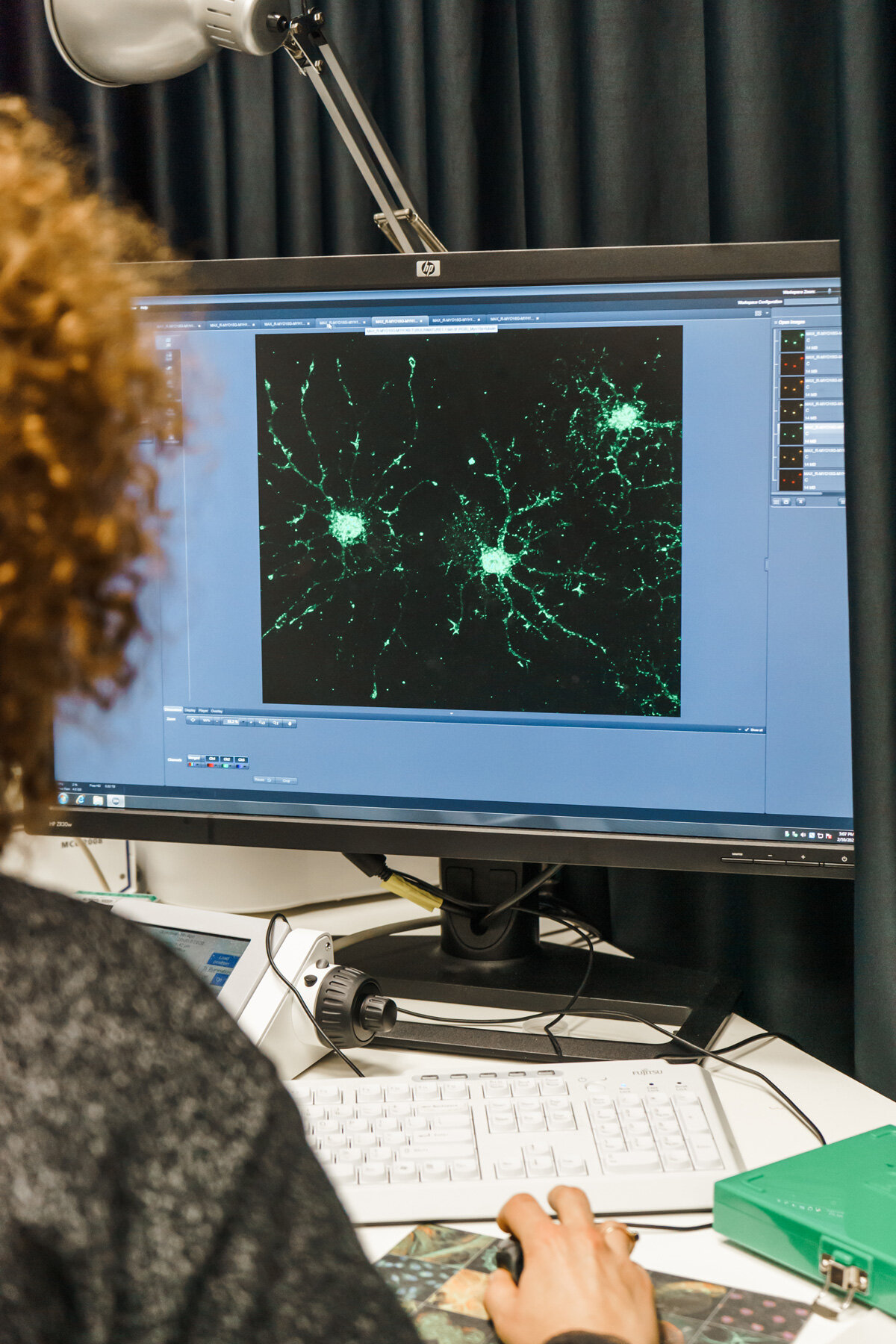
Celebrating WOMEN IN SCIENCE: Interview with Sofia Domingues
February 19, 2020
Following the International Day of Women and Girls in Science – February 11 interview series and since the International Women’s Day – March 8 is just around the corner we continue to shine a spotlight on women in STEM working in/with Science at INL.
Today we bring you Sofia Domingues – Associate Researcher at INL. She’s currently also a Researcher at the Life and Health Sciences Research Institute (ICVS) from the University do Minho but continues the existing collaboration with Inês Pinto – Staff Researcher. Sofia is a Neuroscientist and she focuses her work in the study of mammalian myelination, one of the main evolutionary achievements of vertebrates. While myelination is strongly related to our improved cognitive, motor and social skills, its disruption is commonly related to the autoimmune disease multiple sclerosis, but also to several other neurological pathologies and age-related cognitive decline.
She’s also extremely interested in science communication: talk about science, discuss science! Not only with the general public to increase awareness and, consequently, their responsibility in our society, but very importantly, also with institutional or private stakeholders, which influence directly our daily life.
What got you interested in this field?
My passion for Neurosciences and the implications that the inherent knowledge may have in our health. I am a Neuroscientist working on a type of brain cells called oligodendrocytes, which are critical for the proper functioning of neurons. Oligodendrocytes produce myelin, an isolating sheath that wraps around neurons, allowing them to communicate much more efficiently with other neurons or other cells (e.g. muscles). Throughout life, the human brain undergoes extensive maturation to facilitate cognitive and motor development and myelination is crucial in these processes. Making it simple, myelin is a hallmark of evolution, making us smarter.
What is the importance of your research?
We now live longer and that comes with a price as our ageing population is affected by the late onset of neurodegenerative disorders. Myelin pathology and abnormalities are seen in several neurodegenerative diseases, neurodevelopment disorders and age-related cognitive decline. My research aims at exploring myelination at the nanoscale and provide knowledge towards the development of new biomarker-based diagnostic technologies for (de)remyelination monitoring and new therapeutic programs.
What is the most exciting discovery you made during your research?
In the past 3 years, while working with Inês Mendes Pinto at INL and in collaboration with Carmen Melendez Vasquez at the Hunter College, CUNY, New York, USA, we’ve developed a computational framework that is able to predict the speed and robustness of neuronal myelination based on the synchronised activation of cellular nanomotors. Remarkably, we were able to test this experimentally. We envision that the identification and characterisation of these nanomotors will have an impact on neurodegenerative disease diagnosis and treatment.
Briefly, what excites you about your work? Understanding Brain function and plasticity!
Though I am are aware that the knowledge we gather in fundamental research will only have a real impact in human life in 1-2 decades from now, I see my work as a long-term investment in the life quality of our society. We are only able to develop technologies that improve our health and lifetime – being them related to diagnostics or treatment – based on basic principles of our functional units, the cells.






